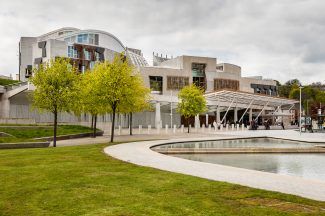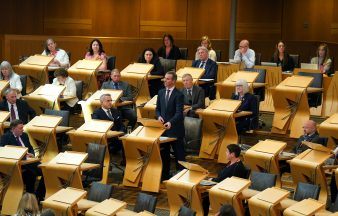Exposure to air pollution could have increased during the Covid-19 lockdown, according to research from the University of Stirling.
The research team, from Stirling’s Institute for Social Marketing and Health, said data showed that despite a significant reduction in vehicle journeys, the level of toxic fine particles in the air was not reduced.
Dr Ruaraidh Dobson, who led the study, suggested that people could be more at risk from poor air quality in their own homes, especially where cooking and smoking are taking place in poorly ventilated spaces.
Dr Dobson said: “It has been assumed that fewer cars on the road might have led to a decline in the level of air pollution outdoors and, in turn, reduce the number of cases of ill health linked to this pollution.
“However, our study – contrary to research from places such as Wuhan in China, and Milan – found no evidence of fine particulate air pollution (PM2.5) declining in Scotland because of lockdown.
“This suggests that vehicles aren’t an important cause of this very harmful type of air pollution in Scotland – and people may be at greater risk from poor air quality in their own homes, especially where cooking and smoking is taking place in enclosed and poorly ventilated spaces.”
The data found that while there had been a 65% reduction in vehicles on the road, there was very little change in air pollution, compared to previous years.
The team did, however, note a reduction in nitrogen dioxide – specifically associated with vehicle exhaust emissions – in 2020.
Explaining that personal exposure to potentially harmful air could have actually increased during the lockdown, due to people spending more time at home, the paper says: “Lockdowns are intended to result in people spending more time in their homes.
“This could increase population exposure to indoor air pollution, such as cooking fumes and second-hand tobacco smoke.”
It continues: “In countries, like Scotland, where it appears that the lockdown has not led to reductions in outdoor fine particulate matter pollution, it is possible that personal exposure to PM2.5 may actually have increased rather than declined, due to higher concentrations from indoor sources of particulate within the home setting.
“This could increase adverse health effects overall and also health inequalities – lower income people are more likely to smoke and to smoke indoors, and are likely to have smaller homes leading to higher PM2.5 concentrations from individual sources, due to smaller room volumes.
“If the severity of Covid-19 is related to air pollution exposure – as has been suggested – increased exposure to PM2.5 could potentially increase the death toll of that disease.
“Careful and balanced consideration of both outdoor and indoor sources of PM2.5 is essential to tackling the health harm of air pollution effectively and equitably.”
Follow STV News on WhatsApp
Scan the QR code on your mobile device for all the latest news from around the country




























